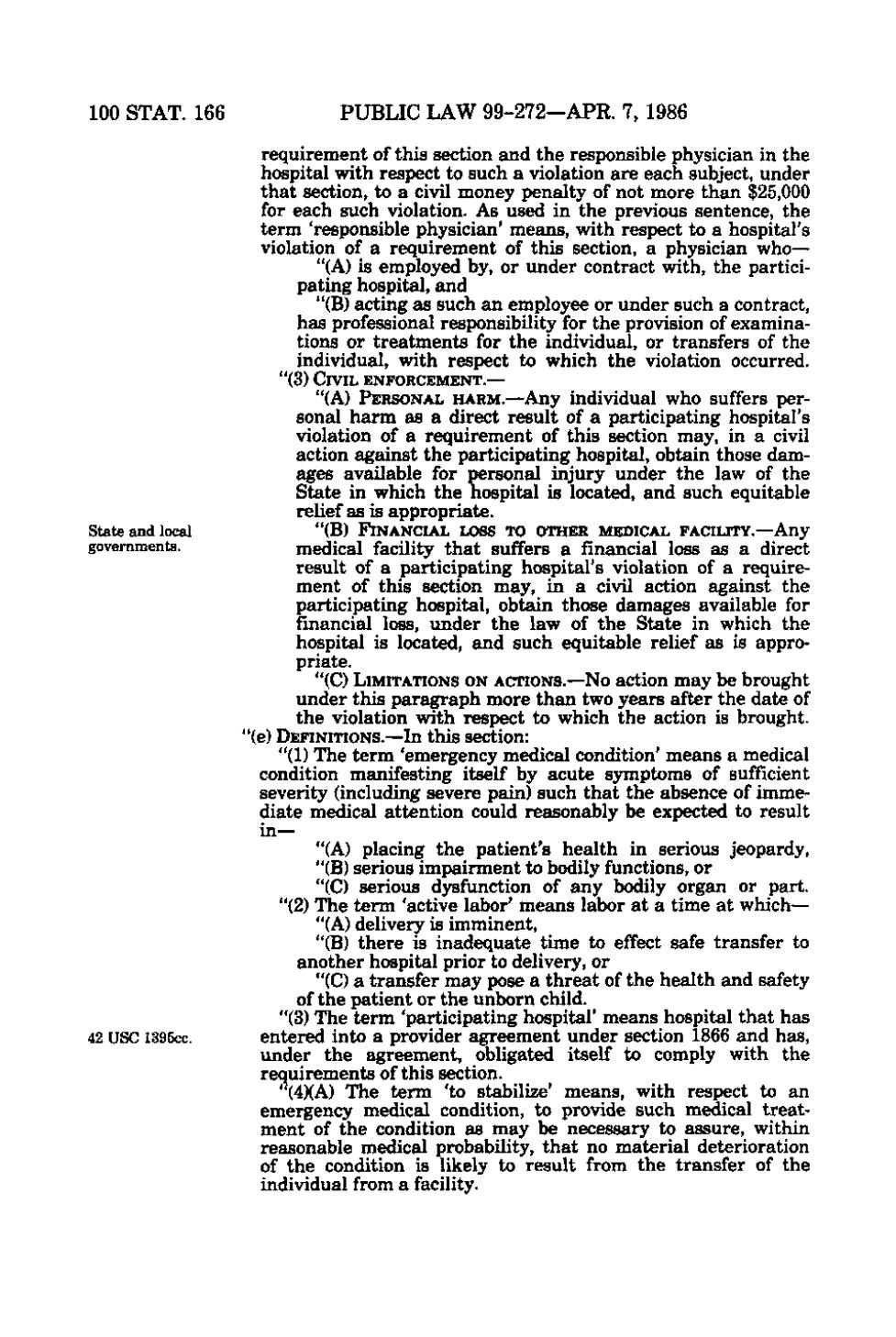PUBLIC LAW 99-272—APR. 7, 1986
100 STAT. 166
requirement of this section and the responsible physician in the hospital with respect to such a violation are each subject, under that section, to a civil money penalty of not more than $25,000 for each such violation. As used in the previous sentence, the term 'responsible physician' means, with respect to a hospital's violation of a requirement of this section, a physician who— "(A) is employed by, or under contract with, the participating hospital, and "(B) acting as such an employee or under such a contract, has professional responsibility for the provision of examinations or treatments for the individual, or transfers of the individual, with respect to which the violation occurred. xv.
"(3) CIVIL ENFORCEMENT.— "(A) PERSONAL HARM.—Any
J i
individual who suffers personal harm as a direct result of a participating hospital's violation of a requirement of this section may, in a civil action against the participating hospital, obtain those damages available for personal injury under the law of the State in which the hospital is located, and such equitable relief as is appropriate.
State and local
"(B) FINANCIAL LOSS TO OTHER MEDICAL FACILITY.—Any
governments. "•r ' '•>•' ^-*
42 USC 1395CC.
medical facility that suffers a financial loss as a direct result of a participating hospital's violation of a requirement of this section may, in a civil action against the participating hospital, obtain those damages available for financial loss, under the law of the State in which the hospital is located, and such equitable relief as is appropriate. "(C) LIMITATIONS ON ACTIONS.—No action may be brought
under this paragraph more than two years after the date of the violation with respect to which the action is brought. "(e) DEFINITIONS.—In this section: "(1) The term 'emergency medical condition' means a medical condition manifesting itself by acute symptoms of sufficient severity (including severe pain) such that the absence of immediate medical attention could reasonably be expected to result in— "(A) placing the patient's health in serious jeopardy, "(B) serious impairment to bodily functions, or "(C) serious dysfunction of any bodily organ or part. "(2) The term 'active labor' means labor at a time at which— "(A) delivery is imminent, "(B) there is inadequate time to effect safe transfer to another hospital prior to delivery, or "(C) a transfer may pose a threat of the health and safety of the patient or the unborn child. "(3) The term 'participating hospital' means hospital that has entered into a provider agreement under section 1866 and has, under the agreement, obligated itself to comply with the requirements of this section. "(4)(A) The term 'to stabilize' means, with respect to an emergency medical condition, to provide such medical treatment of the condition as may be necessary to assure, within reasonable medical probability, that no material deterioration of the condition is likely to result from the transfer of the individual from a facility.
�
